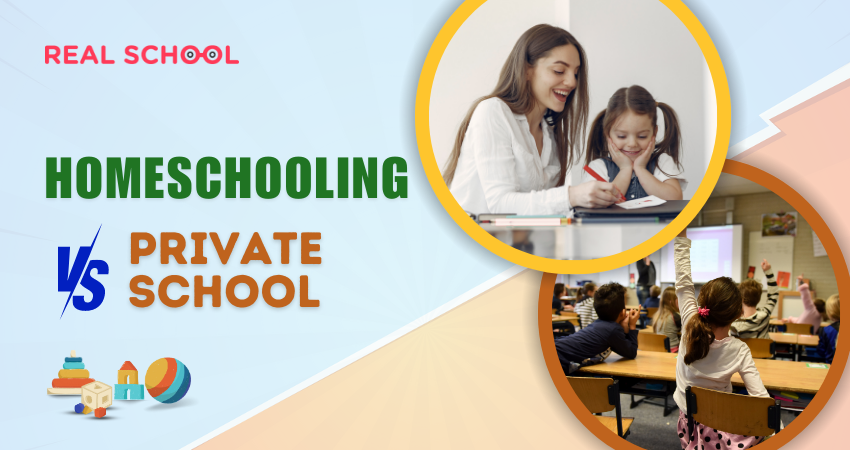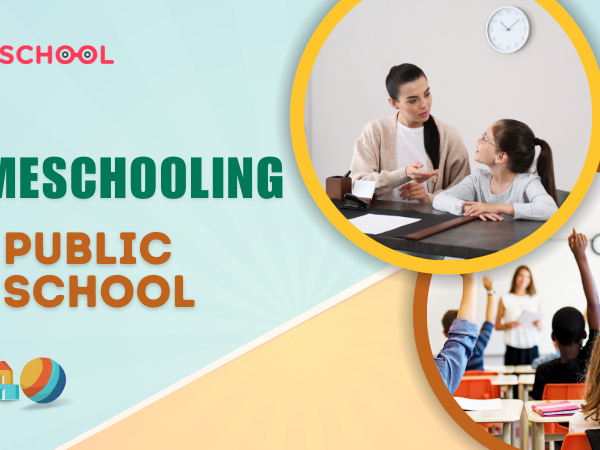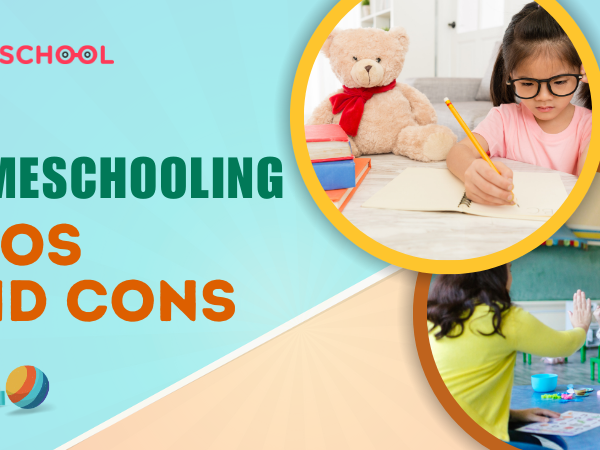When it comes to your child’s education, the options are diverse and dynamic. During Homeschooling vs Private School, we delve into two distinct paths homeschooling and private schooling that offer unique opportunities.
We’ll throw light on their distinctions in the following investigation, allowing you to make an informed decision that corresponds with your child’s dreams and your family’s values. This post will serve as your compass, whether you choose the individualized flexibility of homeschooling or the organized perfection of private instruction. Let’s work together to ensure your child’s academic achievement.
Homeschooling: A Personalized Approach
Flexible Learning Environments
Pro: Homeschooling offers the flexibility to choose learning environments that suit your child’s needs. Whether it’s a cozy corner at home or a local library, you have the freedom to create the ideal setting for learning.
Real-Life Learning
Pro: Homeschooling allows for real-life learning experiences. Children can accompany parents on trips, visit museums, explore nature, and engage in hands-on activities that enhance their education.
Individualized Attention
Pro: Homeschooling provides individualized attention for each child. This means addressing their specific learning strengths, weaknesses, and interests in a more focused manner.
Holistic Education
Pro: Homeschooling enables a holistic approach to education. Beyond academics, you can incorporate life skills, character development, and cultural education into the curriculum.
Personalized Pace
Pro: Homeschooling allows children to set their pace for learning. If a child excels in a particular subject, they can move ahead, while they can take more time to grasp challenging concepts.
Private Schooling: A Structured Learning Environment
Professional Guidance
Pro: Private schools provide expert guidance. Qualified teachers follow established curricula, ensuring students receive high-quality instruction across subjects.
Diverse Peer Interactions
Pro: Private schools offer diverse peer interactions. Students come from various backgrounds, fostering a rich cultural and social environment that broadens perspectives.
Access to Advanced Facilities
Pro: Private schools often boast advanced facilities, including science labs, sports complexes, and performing arts spaces, enhancing the learning experience.
Structured Extracurriculars
Pro: Private schools offer structured extracurricular activities. Students can participate in a wide range of clubs, teams, and artistic pursuits, promoting well-rounded development.
College and Career Readiness
Pro: Private schools often have robust college counseling and career readiness programs. They can provide valuable support for students preparing for higher education and future careers.
Also Read: How To Prepare Yourself For Homeschooling?
Factors to Consider: Homeschooling vs Private School
After understanding homeschooling vs private schooling, consider the following factors while making choice between homeschooling and private schooling:
Child’s Learning Style
Consider your child’s preferred learning style. Are they more self-motivated and independent, or do they thrive in a structured classroom environment?
Family Lifestyle
Evaluate your family’s lifestyle and daily routines. Does homeschooling align with your family’s commitments, work schedules, and travel plans?
Educational Philosophy
Reflect on your educational philosophy. Do you prioritize a customized, hands-on approach to learning, or do you prefer a structured, standardized curriculum?
Social Development
Think about your child’s social development. Assess their need for regular interactions with peers and the availability of social opportunities in your chosen approach.
Resource Accessibility
Consider the availability of educational resources, support networks, and financial considerations that each approach may require.
Also Read: How Do I Register My Child For Homeschooling?
Conclusion
Ultimately, the choice between homeschooling and private schooling should align with your child’s unique needs, your family’s values, and the resources available to you. Both approaches offer distinct advantages, and the right decision will depend on your specific circumstances and priorities. Know more – The Real School
FAQs: Homeschooling vs Private School
1. What is the typical daily routine like for a homeschooled child compared to one attending a private school?
Ans: Homeschooled children often have more flexibility in their daily routine, allowing for personalized scheduling. Private school students follow a structured daily schedule set by the school.
2. How do standardized tests and assessments differ between homeschooling and private schooling?Ans: Homeschoolers may have varying approaches to standardized testing, depending on local regulations. Private schools typically have a standardized testing schedule in line with educational standards.
3. Are there differences in the extracurricular activities available for homeschooled children compared to private school students?
Ans: Extracurricular options can differ. Private schools often offer a wide range of organized activities on-campus, while homeschooled children can explore community-based or independent extracurriculars.
4. What is the role of parental involvement in homeschooling compared to private schooling?
Ans: In homeschooling, parents take on the primary teaching role. In private schools, parents are usually not involved in daily instruction but may participate in school events and activities.
5. Can homeschooled children transition into private schools or vice versa, and what challenges might they face?
Ans: Transitioning between the two options is possible but may come with adjustments. Homeschooled children entering private school may need to adapt to a more structured environment, while private school students moving to homeschooling may need time to adjust to a more flexible routine.







